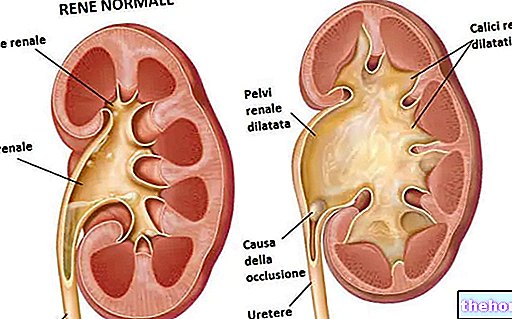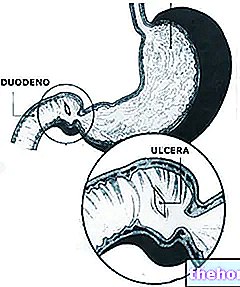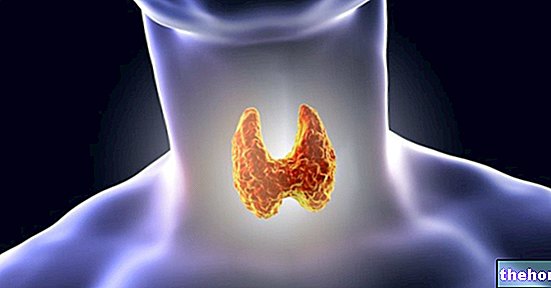The finding of ketones in the urine - defined ketonuria in medical terms - is typical of conditions characterized by an exalted catabolism of free fatty acids, in the presence of a reduced availability of glucose. Similar circumstances are typically found in prolonged fasting and in the course of diabetes mellitus not adequately compensated by drug treatment.
Ketonuria gives the urine a characteristic chloroform odor.

- Tiredness;
- General malaise;
- Passing large amounts of urine
- Intense thirst;
- Dehydration;
- Cramps
- Cardiac arrhythmias;
- Short and frequent breathing;
- Drowsiness;
- Weight loss.

From the oxidation of glucose in the Krebs cycle, a substance is produced - oxaloacetate - which combines with the acetyl-CoA deriving from the Β-oxidation of free fatty acids; from this union originates the citrate, which undergoes the cycle of Krebs reactions for a "further oxidation to carbon dioxide and water.
If the availability of oxaloacetate is low (reduced intracellular availability of glucose) in the face of high concentrations of acetyl-CoA (marked catabolism of fatty acids), two moles of acetyl-CoA join to form acetoacetyl-CoA, precursor of acetoacetate (a ketone body), which in turn can originate 3-hydroxybutyrate and acetone (the other two ketone bodies).
- The individual does not eat enough carbohydrates (in case of lack of appetite or a low-protein diet with a high protein content);
- The body is unable to use carbohydrates adequately.
When carbohydrates are not available, the body metabolizes fatty acids in order to obtain the necessary energy for sustenance.
The appearance of ketone bodies (acetacetic acid, beta-hydroxybutyric acid and acetone) in the urine coincides with the increase of these substances in the blood (ketonemia), a condition that occurs when the ability of tissues to rapidly metabolize ketone bodies is reduced.
Ketones in urine can give an early indication of insulin deficiency in a person with diabetes. Strenuous exercise, exposure to cold and the loss of carbohydrates, which occurs, for example, with frequent vomiting, can increase fat metabolism, leading to ketonuria.
The analysis of ketone bodies is an extremely important test to verify if the organism is having any problems in using insulin. For this reason, the test is recommended for diabetic subjects undergoing insulin treatment.
).NB: the reference values may vary slightly according to the laboratory carrying out the analysis and the type of reference population (sex, age, etc.); therefore, the parameters reported in the report of the analysis center are valid.
;
Other conditions that can cause the level of ketones in the urine to rise include:
- Alcohol abuse;
- Anorexia;
- Bulimia;
- Vomiting and diarrhea;
- Fever;
- Hyperthyroidism;
- Severe malnutrition.
The accumulation of these substances in our body can have more or less serious consequences such as:
- Generalized malaise;
- Numbness
- Mental confusion;
- Intense thirst;
- Nausea and vomit;
- Abdominal pain
- Weight loss.



























